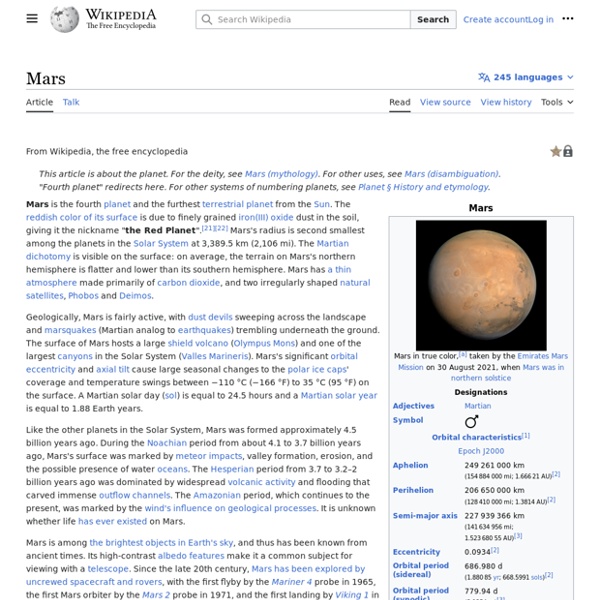Diana
From Wikipedia, the free encyclopedia Jump to navigationJump to search Diana most commonly refers to: Places and jurisdictions[edit] Africa[edit]
Rhea Silvia
The legend[edit] Romulus would go on to found Rome, overthrow Amulius, and reinstate Numitor as King of Alba Longa. In Roman art and literature[edit] In a version presented by Ovid,[7] it is the river Anio who takes pity on her and invites her to rule in his realm. Etymology[edit]
Quintus Fabius Pictor
Life[edit] Q. Fabius Pictor led Roman forces against the Gauls in 225 BC. In 216 BC, during the Second Punic War, he was appointed to travel to the oracle at Delphi in Greece to seek guidance after the disastrous Roman defeat to Hannibal at Cannae. Work[edit]
Artemis
Deity in ancient Greek religion and myth Artemis is the daughter of Zeus and Leto, and the twin sister of Apollo. She was the patron and protector of young girls, and was believed to bring disease upon women and relieve them of it. Artemis was worshipped as one of the primary goddesses of childbirth and midwifery along with Eileithyia. Much like Athena and Hestia, Artemis preferred to remain a maiden and is sworn never to marry. Artemis was one of the most widely venerated of the Ancient Greek deities and her temple at Ephesus was one of the Seven Wonders of the Ancient World.
Quirinus
In Roman mythology and religion, Quirinus ( kwi-RY-nəs,[1] Latin: [kᶣɪˈriːnʊs]) is an early god of the Roman state. In Augustan Rome, Quirinus was also an epithet of Janus, as Janus Quirinus.[2] His name may be derived from the Sabine word quiris "spear". Etymology[edit] Quirinus is probably an adjective meaning "wielder of the spear" (quiris, in the Sabine language, cf.
Gauls
Group of Celtic peoples of Western Europe The Gauls (Latin: Galli, Ancient Greek: Γαλάται, Galátai) were a group of Celtic peoples of Continental Europe in the Iron Age and the Roman period (roughly from the 5th century BC to the 5th century AD). The area they originally inhabited was known as Gaul. Their Gaulish language forms the main branch of the Continental Celtic languages.
Leto
Greek mythological figure and mother of Apollo and Artemis The island of Kos is claimed to be her birthplace. However, Diodorus, in 2.47 states clearly that Leto was born in Hyperborea and not in Kos.[2] In the Olympian scheme, Zeus is the father of her twins,[3] Apollo and Artemis, which Leto conceived after her hidden beauty accidentally caught the eye of Zeus. Classical Greek myths record little about Leto other than her pregnancy and search for a place where she could give birth to Apollo and Artemis, since Hera in her jealousy caused all lands to shun her.
Romulus
Legendary founder and first king of Rome Romulus () was the legendary founder and first king of Rome. Various traditions attribute the establishment of many of Rome's oldest legal, political, religious, and social institutions to Romulus and his contemporaries.
Barcids
Background[edit] During the 3rd century BC, the Barcids comprised one of the leading families in the ruling oligarchy of Carthage. Realizing that the expansion of the Roman Republic into the Mediterranean Sea threatened the mercantile power of Carthage, they fought in the First Punic War (264–241 BC) and prepared themselves for the Second Punic War (218–201 BC). The Barcids founded several Carthaginian cities in the Iberian peninsula, some of which still exist today. Note for example Mahón and Qart Hadast (more famous under the Latin translation of its name: "Carthago Nova" or New Carthage) which currently bears the name of Cartagena in modern-day Spain.
Jupiter
Fifth planet from the Sun in the Solar System Formation and migration Astronomers have discovered nearly 500 planetary systems with multiple planets.
Pythagoras
6th century BC Ionian Greek philosopher and mystic Pythagoras of Samos[a] (c. 570 – c. 495 BC)[b] was an ancient Ionian Greek philosopher and the eponymous founder of Pythagoreanism. His political and religious teachings were well known in Magna Graecia and influenced the philosophies of Plato, Aristotle, and, through them, Western philosophy.



